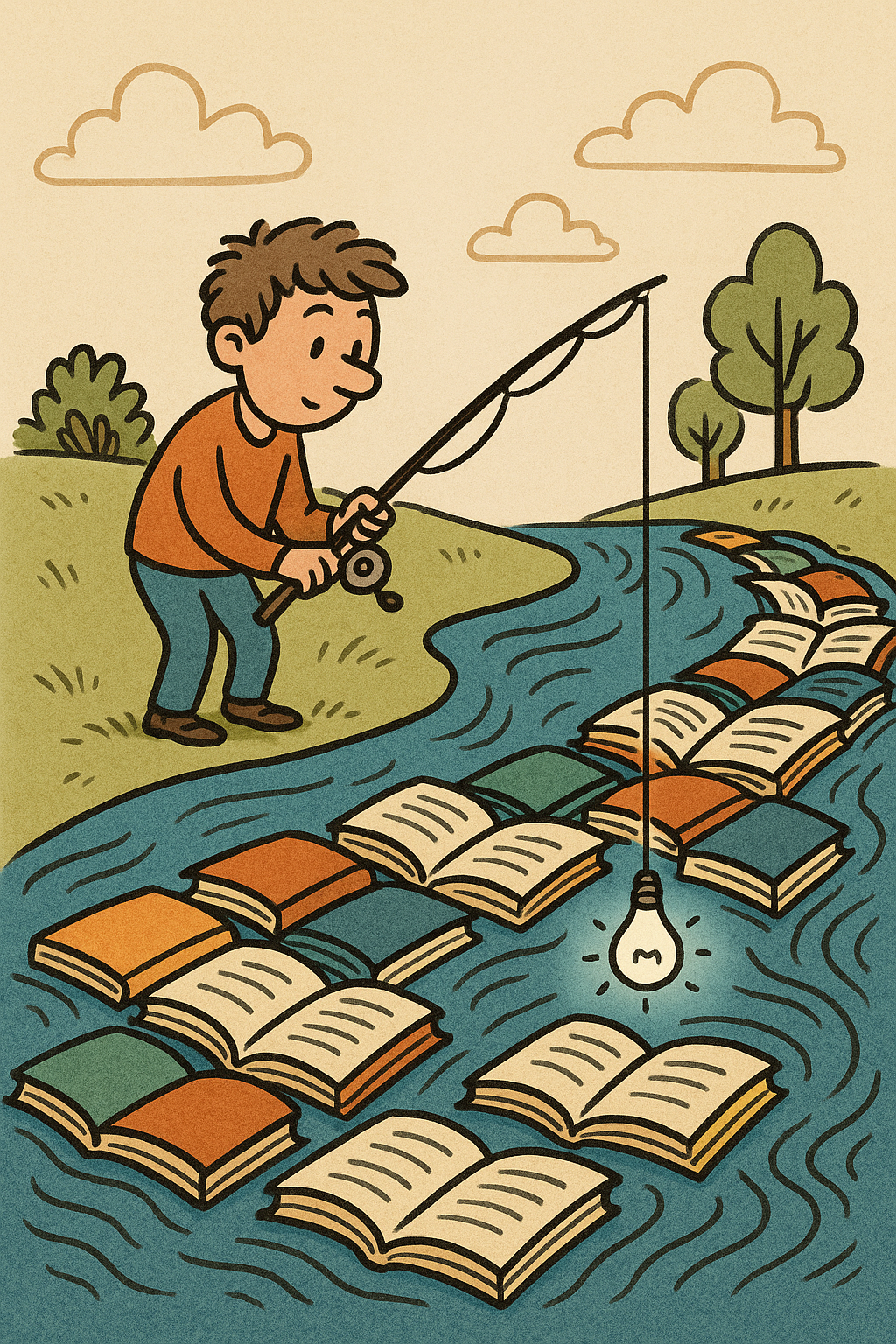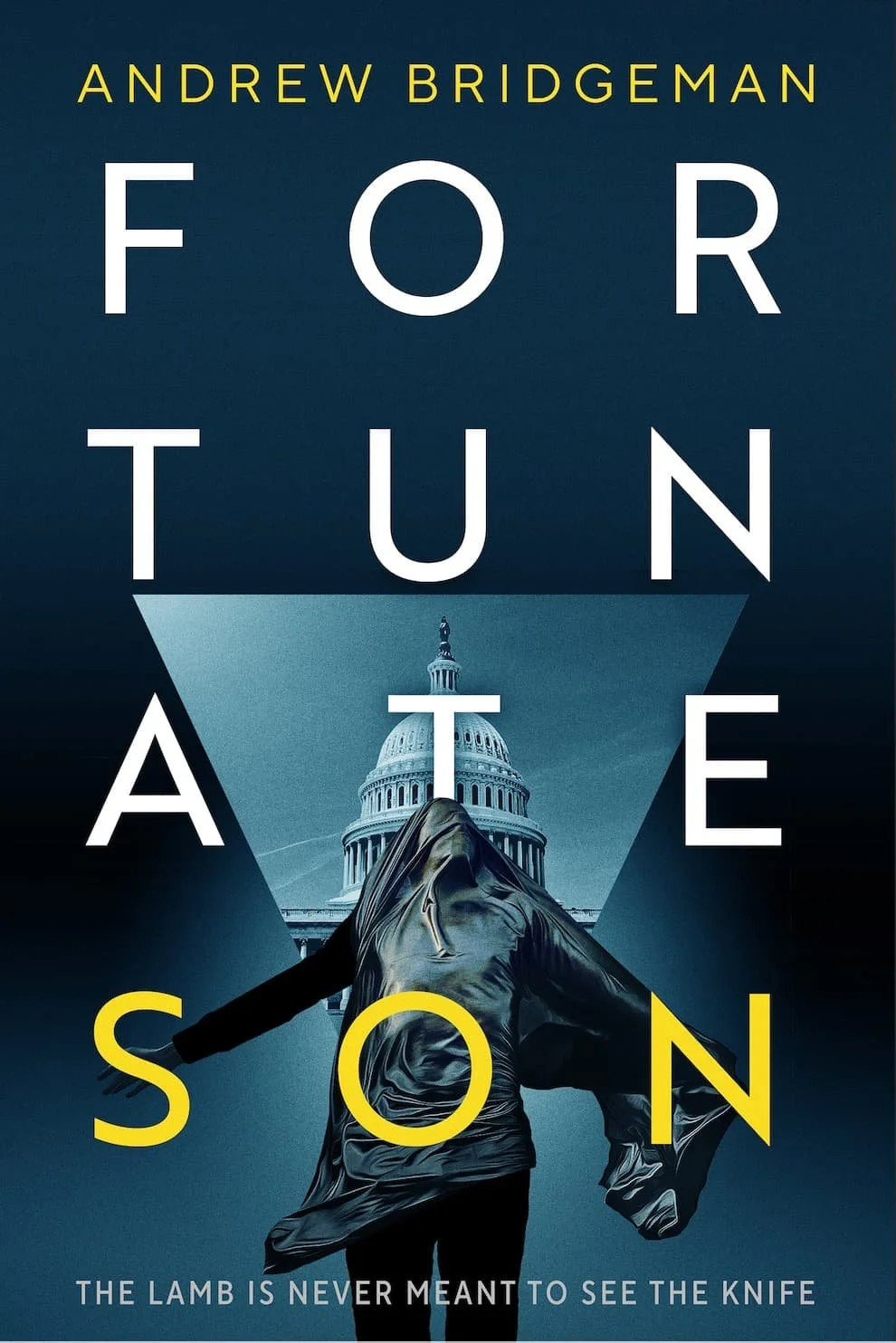There’s Something Fishy About Ideas
“How Do You Get Your Ideas?”
I get this question sometimes at book signings or when I'm speaking to a club that just read my book. But behind their eyes, I can see the real question: "How deranged are you, anyway?"
When I started writing, I thought ideas were rare. I'd wait for lightning to strike—for that perfect concept to announce itself. I treated each one like it might be the only idea I'd ever get.
I thought of it like fishing. You wade into the river, cast your line, and wait. The first decent idea that bites? That's the one. The bigger the better. And hold on tight because who knows when another will come along.
But here's what I learned: the river is full of fish. Hundreds of thousands of them. The more you stand there and watch the water, the more you see. They're everywhere.
The problem isn't catching one. The problem is figuring out which one is YOUR fish. Because some aren't meant for you.
Ideas That Look Like Ideas But Aren't
Some ideas look perfect in the moment—a clever twist, a great opening scene, a "what if" that makes you sit up at 2 AM. But when you start writing, you realize there's not enough there. Twenty thousand words in, you're out of story. It seemed like a novel-sized idea, but it was actually a short story wearing a novel's clothes.
Ideas That Belong to Someone Else
Then there are the ideas that look huge and healthy. Epic scope. Multiple timelines. Ambitious themes. You're positive this is the one. Except your system can't process it. Maybe it's not your genre. Maybe you're not ready for that level of complexity. Maybe it's someone else's book, and you're just carrying it for a while.
What I'm Actually Looking For
They say you should write every day. It's good advice—advice I mostly try to follow. It sharpens the blade, but it does something else: it teaches you what to look for in a story.
I spent my early writing days looking for complete ideas. I wanted everything ready to go—plot, characters, ending, all of it fully formed before I started writing.
That's not how my process works. I need something smaller. A question that won't let me go. A situation that makes me uncomfortable. A premise I can't stop thinking about.
For Fortunate Son, it was "What if you were told that your life was a lie? That everything you believed was false?"
What If Everything You Knew About Yourself Was A Lie?
That's all I had. No plot. No ending. Just that question. But I trusted myself to figure out the rest. That trust took years to develop.
The breakthrough came when I stopped treating ideas as precious and started treating them as abundant. I gave myself permission to throw ideas back. To walk away from concepts I'd been nursing for months. To trust that if this one wasn't right, another one would appear tomorrow.
Because they do. They always do.
You only learn which ideas are yours by starting books that don't work. By walking away from concepts that someone else could probably execute beautifully, but that aren't meant for you.
So yes, I'm a little deranged. But not because ideas are hard to find. I'm deranged because I've learned to stand in a river full of thousands of possibilities and stay patient enough to wait for the right one.
The river is full. It's always full.



